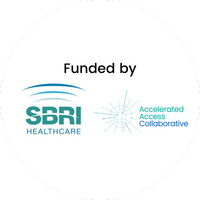The climate crisis effects all those alive today, and we're better able to combat it when we work together.
We often work with partner organisations on our sustainabilty projects, and you can find more here.
UK Health Alliance on Climate Change

In November 2021 we joined the UK Health Alliance on Climate Change (UKHACC), an alliance of UK-based health organisations representing about 1 million health professionals.
They coordinate action, provide leadership, and amplify the voice of health professionals across the UK. Their work is focussed on three key areas; raising awareness, empowering people and influencing change.
In 2023 they launched their committments for health organisations, of which the Society is a signatory, and we're working hard to make sure we meet each one.

ANZICS: A Beginners Guide to Green Teams in the ICU
The Society in collaboration with the Australia and New Zealand Intensive Care Society (ANZICS) have developed "A Beginners Guide to: Green Teams in the ICU". This builds on the ANZICS sustainability toolkit (2022) and provides practical tools and case studies on how and why to establish a Green Team in your ICU.
The Intensive Care Sustainability Recipe Book
In April 2024, we were thrilled to announce that we, alongside the University of Brighton, Faculty of Intensive Care Medicine and UK Critical Care Nursing Alliance, were awarded funding to produce ‘The Intensive Care Sustainability Recipe Book’ – a ‘how to’ manual of sustainable intensive care practice: the carbon footprint of all elements of our work, and how these can be reduced.
The project will be hosted by the University of Brighton, with significant contribution from the Society, the Faculty and the Alliance, and support from a large group of advisors working in critical care all over the UK. It will include supporting a Research Fellow in Sustainable Intensive Care in the development of the Recipe Book.
For more information about the project you can contact our team at [email protected].

